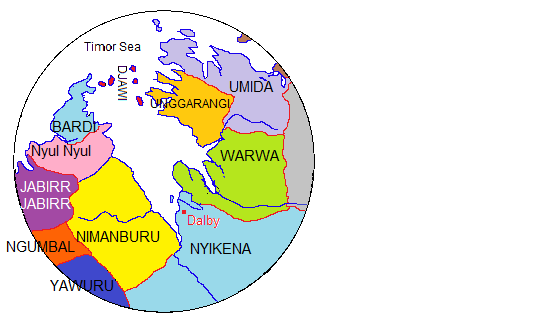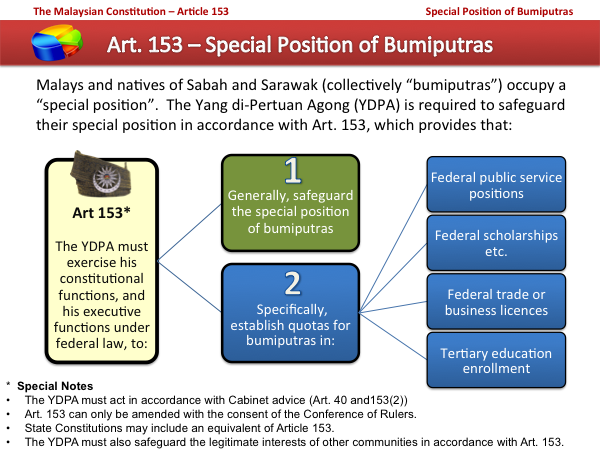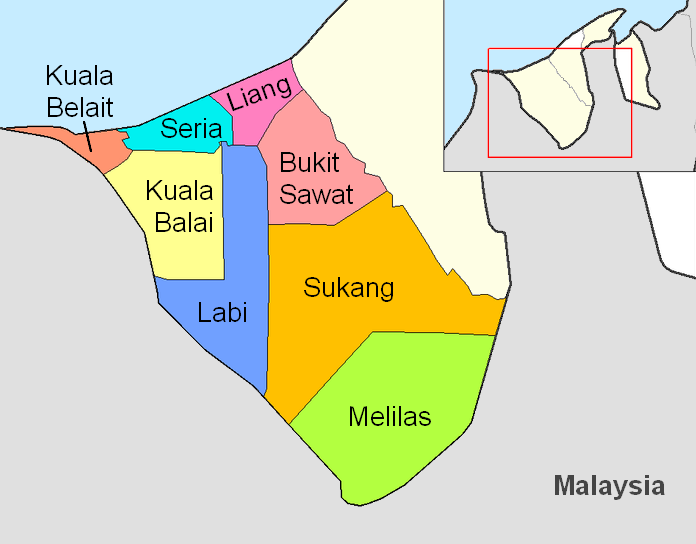|
Kuala Kangsar District
The Kuala Kangsar District is a district in Perak, Malaysia. Kuala Kangsar shares its borders with Larut, Matang and Selama at the west, Hulu Perak at the north, Gua Musang of Kelantan at the east, Kinta at the south, Perak Tengah and Manjung at the southwest. The seat of this district is the town of Kuala Kangsar. Administrative divisions Kuala Kangsar District is divided into 9 mukims, which are: * Chegar Galah * Kampung Buaia * Kota Lama Kanan * Kota Lama Kiri * Lubuk Merbau * Pulau Kamiri * Sayong * Senggang * Sungai Siput Demographics The following is based on Department of Statistics Malaysia 2010 census. Federal Parliament and State Assembly Seats List of Kuala Kangsar district representatives in the Federal Parliament ( Dewan Rakyat) List of Kuala Kangsar district representatives in the State Legislative Assembly. See also * Districts of Malaysia Districts ( Malay: '' Daerah''; '' Jajahan'' in Kelantan) are a type of administrative division bel ... [...More Info...] [...Related Items...] OR: [Wikipedia] [Google] [Baidu] |
Jawi Language
Jawi or Djawi or Djaui, is a moribund language, nearly extinct dialect of the Bardi language of Western Australia, the traditional language of the Jawi people. There are no longer any known fluency, fluent speakers, but there may be some partial speakers. The name has also been spelt Chowie, Djaoi, Djau, Dyao, and Dyawi. Classification Jawi is a Non-Pama–Nyungan languages, Non-Pama–Nyungan language of the Nyulnyulan languages, Nyulnyulan family, most closely related to Bardi language, Bardi. Bowern discusses how Jawi and Bardi may have converged within the last hundred years. Jawi people were hit hard by influenzaSunday Island Mission Records in the early years of the 20th century. Their traditional lands are Sunday Island (King Sound), Sunday Island and the islands of the Buccaneer Archipelago to the northeast. References Cited references General references * * * Bird, W.; Hadley, S. (not dated). "Native vocabulary: Sunday Island", unpublished manuscript. Further r ... [...More Info...] [...Related Items...] OR: [Wikipedia] [Google] [Baidu] |
Kinta District
The Kinta District is a district in Perak, Malaysia. It contains the state capital Ipoh. History Kinta District was once famous for its tin, being one of the major tin producers in the 18th century. Administrative divisions Kinta District is divided into 5 mukims, which are: * Belanja * Sungai Terap (Batu Gajah town) * Sungai Raia (including Simpang Pulai) * Tanjung Tualang * Hulu Kinta (including much of Ipoh's urban area) Government Kinta District is divided into two major councils: *Ipoh City Council , based in Ipoh, the state capital of Perak *Batu Gajah District Council, based in the town of Batu Gajah The district and land officer also divided into Ipoh and Batu Gajah, and the Kinta District Office is centered at Batu Gajah. Demographics The following is based on Department of Statistics Malaysia 2020 census. Federal Parliament and State Assembly Seats List of Kinta district representatives in the Federal Parliament (Dewan Rakyat) List of Kinta district rep ... [...More Info...] [...Related Items...] OR: [Wikipedia] [Google] [Baidu] |
Kesavan Subramaniam
Kesavan s/o Subramaniam ( ta, கேசவன் சுப்ரமணியம், Kēcavaṉ cupramaṇiyam) is a Malaysian politician of Indian origin from the People's Justice Party (PKR), a component party of Pakatan Harapan (PH) coalition. He currently is a Member of Parliament represents the parliamentary seat of Sungai Siput in Perak. He is also formerly the Member of the Perak State Legislative Assembly for Hutan Melintang Hutan Melintang ( Jawi: هوتن ملينتڠ; ) is a mukim in Bagan Datuk District, Perak, Malaysia. The town is located next to the Strait of Malacca The Strait of Malacca is a narrow stretch of water, 500 mi (800 km) long and from 40 to ... for two terms from 2008 to 2018. Controversy In May 2019, Kesavan was accused of sexual harassment by a woman who claimed to be his former aide in a police report she had lodged. However, Kesavan had denied the accusation and her allegation of being his former assistant. Kesavan had counter filed ... [...More Info...] [...Related Items...] OR: [Wikipedia] [Google] [Baidu] |
Sungai Siput (federal Constituency)
Sungai Siput is a federal constituency in Kuala Kangsar District and Hulu Perak District, Perak, Malaysia, that has been represented in the Dewan Rakyat The Dewan Rakyat (English: 'House of Representatives'; ) is the lower house of the bicameral Parliament, the federal legislature of Malaysia. The chamber and its powers are established by Article 44 of the Constitution of Malaysia. The Dewan Ra ... since 1959. The federal constituency was created in the 1958 redistribution and is mandated to return a single member to the Dewan Rakyat under the first past the post voting system. This seat was formerly a stronghold for the Malaysian Indian Congress during the presidency of Tun Sambanthan and Tun Samy Vellu. MIC lost this seat in the 2008 general election and has since failed to regain the seat. MIC has previously represented this seat since its creation Demographics History Polling districts According to the gazette issued on 31 October 2022, the Sungai Siput constituenc ... [...More Info...] [...Related Items...] OR: [Wikipedia] [Google] [Baidu] |
Padang Rengas (federal Constituency)
Padang Rengas is a federal constituency in Perak, Malaysia Malaysia ( ; ) is a country in Southeast Asia. The federation, federal constitutional monarchy consists of States and federal territories of Malaysia, thirteen states and three federal territories, separated by the South China Sea into two r ..., that has been represented in the Dewan Rakyat since 1974. The federal constituency was created in the 1974 redistribution and is mandated to return a single member to the Dewan Rakyat under the first past the post voting system. Demographics History It was abolished in 1986 when it was redistributed. It was re-created in 2003. Agriculture is the main economical activities in the area. Padang Rengas is surrounded by the small rubber estates creating job opportunity to the residents. Residents have a mix of Malays, Chinese, Indian and foreign workers. Liman Kati is the village with shops for business activities to help the rubber estate workers for daily supply and nee ... [...More Info...] [...Related Items...] OR: [Wikipedia] [Google] [Baidu] |
Dewan Rakyat
The Dewan Rakyat (English: 'House of Representatives'; ) is the lower house of the bicameral Parliament, the federal legislature of Malaysia. The chamber and its powers are established by Article 44 of the Constitution of Malaysia. The Dewan Rakyat sits in the Houses of Parliament in Kuala Lumpur, along with the Dewan Negara, the upper house. The Dewan Rakyat is a directly elected body consisting of 222 members known as Members of Parliament (MPs). Members are elected by first-past-the-post voting with one member from each federal constituency. Members hold their seats until the Dewan Rakyat is dissolved, the term of which is constitutionally limited to five years after an election. The number of seats each state or territory is entitled to is fixed by Article 46 of the Constitution. While the concurrence of both chambers of Parliament is normally necessary for legislation to be enacted, the Dewan Rakyat holds significantly more power in practice; the Dewan Negara very rar ... [...More Info...] [...Related Items...] OR: [Wikipedia] [Google] [Baidu] |
Malaysian Indian
Malaysian Indians or Indian Malaysians are Malaysian citizens of Indian or South Asian ancestry. Today, they form the third-largest group in Malaysia after the Malays and the Chinese. Most are descendants of those who migrated from India during the British Malaya era from the early 19th to mid-20th centuries. The majority of Malaysian Indians are ethnic Tamils; smaller groups include the Malayalees, Telugus, Sikhs and others. Malaysian Indians form the fifth largest community of Overseas Indians in the world. Within Malaysia, they represent the third-largest group (constituting 6.8% of the Malaysian population), after the ethnic Malay and Chinese. They are usually simply referred to as "Indian" in Malaysia, ''Orang India'' in Malay, "''Yin du ren''" in Chinese. Malaysia's Indian population is notable for its class stratification, with a significant elite as well as a large low income groups within its fold. Malaysian Indians make up a disproportionately large percentage of pr ... [...More Info...] [...Related Items...] OR: [Wikipedia] [Google] [Baidu] |
Chinese Malaysian
Malaysian Chinese (; Malay: ''Orang Cina Malaysia''), alternatively Chinese Malaysians, are Malaysian citizens of Han Chinese descent. They form the second largest ethnic group after the Malay majority constituting 22.4% of the Malaysian population. Most of them are descendants of Southern Chinese immigrants who arrived in Malaysia between the early 19th century and the mid-20th century. Malaysian Chinese form the second largest community of Overseas Chinese in the world, after Thai Chinese. Malaysian Chinese are traditionally dominant in the business sector of the Malaysian economy. The ethnic subgroups of Chinese people in Malaysia include the Hokkien, Cantonese, Hakka, Teochew, Hainan, Foochow and Kwongsai. Different Chinese languages are spoken in Malaysian towns and cities. Among them are Cantonese in Kuala Lumpur, Ipoh, Kuantan, Seremban, Mersing, Kampar, Petaling Jaya and Sandakan, Hokkien in George Town, Alor Setar, Kangar, Klang, Taiping, Kota Bharu and ... [...More Info...] [...Related Items...] OR: [Wikipedia] [Google] [Baidu] |
Bumiputera (Malaysia)
''Bumiputera'' or ''Bumiputra'' ( Jawi: ) is a term used in Malaysia to describe Malays, the Orang Asli of Peninsular Malaysia, and various indigenous peoples of East Malaysia (see official definition below). The term is sometimes controversial, and has similar usage in the Malay world, used similarly in Indonesia and Brunei. The term is derived from the Sanskrit which was later absorbed into the classical Malay word ( sa, भूमिपुत्र, bhū́miputra), which can be translated literally as "son of the land" or "son of the soil". In Indonesia, this term is known as "Pribumi". In the 1970s, the Malaysian government implemented policies designed to favour bumiputras (including affirmative action in public education and in the public sector) to elevate the socioeconomic status of the economically disadvantaged bumiputera community and to defuse interethnic tensions following the 13 May Incident in 1969 by placating the Malay majority through granting them a pri ... [...More Info...] [...Related Items...] OR: [Wikipedia] [Google] [Baidu] |
Ethnicity
An ethnic group or an ethnicity is a grouping of people who identify with each other on the basis of shared attributes that distinguish them from other groups. Those attributes can include common sets of traditions, ancestry, language, history, society, culture, nation, religion, or social treatment within their residing area. The term ethnicity is often times used interchangeably with the term nation, particularly in cases of ethnic nationalism, and is separate from the related concept of races. Ethnicity may be construed as an inherited or as a societally imposed construct. Ethnic membership tends to be defined by a shared cultural heritage, ancestry, origin myth, history, homeland, language, or dialect, symbolic systems such as religion, mythology and ritual, cuisine, dressing style, art, or physical appearance. Ethnic groups may share a narrow or broad spectrum of genetic ancestry, depending on group identification, with many groups having mixed genetic ancestry. Ethni ... [...More Info...] [...Related Items...] OR: [Wikipedia] [Google] [Baidu] |
Sungai Siput
Sungai Siput (U) ( Jawi: سوڠاي سيڤوت; Tamil: சுங்கை சீப்புட்) (English: Snail River) is a town and mukim in Kuala Kangsar District, Perak, Malaysia, covering 155.141 hectares, 61.5% of the total area of Kuala Kangsar. Sungai Siput falls under the management of the Kuala Kangsar Municipal Council. History The earliest settlement in Sungai Siput was situated at Pelang, about 2 kilometres from the current town. The settlement was populated by villagers of Minangkabau origins who had earlier settled in Sayong. The settlers were from the family of Malik and the son Tuyub, which family tomb is still visible from the roadside situated in the estate in front of the Rimba Panjang new village. One of the descendants was the late Imam Jusuh, one of the first imams of the Alghufraniah Sungai Siput Mosque and the town councillor. Sister Enson was a well-known traditional healer. One of the surviving siblings is Associate Professor Suhaimi Bin Saidin, ... [...More Info...] [...Related Items...] OR: [Wikipedia] [Google] [Baidu] |
Mukim
A mukim is a type of administrative division used in Brunei, Indonesia, Malaysia and Singapore. The word ''mukim'' is a loanword in English. However, it was also originally a loanword in Malay from the Arabic word: (meaning ''resident''). The closest English translation for mukim is township. Usage Brunei In Brunei, a mukim is the immediate subdivision of a district (). The equivalent English word for 'mukim' is 'township'. There are 38 mukims in Brunei. Each mukim is an administrative area made up of several (Malay for "village"). A mukim is headed by a (Malay for "headman"), which is an elected office. The number of mukims in each of the districts in Brunei is as follows: The smallest mukim by area is Mukim Saba in the Brunei-Muara District. The largest mukim by area is Mukim Sukang in the Belait District. The last change in the mukim boundaries was in the late 1990s when Mukim Kumbang Pasang was merged into Mukim Kianggeh and Mukim Berakas was divided into Muki ... [...More Info...] [...Related Items...] OR: [Wikipedia] [Google] [Baidu] |




